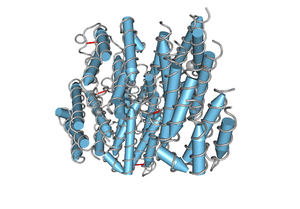
Those of us of a certain vintage will remember the days when interferon was the only option for hepatitis C patients.
Then, the pegylated versions were launched and rapidly became successful products.
However, the goal of an interferon-free regimen was still a pipe dream.
Today, we’re still not to the point where interferon-free regimens are mainstream, but it looks like we’re getting closer.
Three press releases this month highlight the progress being made towards an interferon-free regimen against hepatitis C.
First, Boehringer Ingelheim announced Phase II data from a 12-week all-oral combination therapy:
Interim data presented today show that all patients (13/13) who reached their 4-week post-treatment follow-up have undetectable levels of hepatitis C virus (SVR4) after completing a 12-week regimen of faldaprevir*, deleobuvir*, PPI-668* and ribavirin.
Two weeks later, AbbVie released Phase III data for their interferon-free hepatitis C regimen:
In the 631-patient SAPPHIRE-I study, patients new to therapy receiving 12 weeks of AbbVie’s 3D regimen achieved a sustained virologic response at 12 weeks post-treatment (SVR12) of 96 percent.
The 65-patient, 3-arm study tested MK-5172, a protease inhibitor, combined with MK-8742 from a highly promising new class of drugs called NS5A inhibitors for 12 weeks of treatment.
Based on data available at the time the interim results were released, 55 of 56 patients who completed the therapy were considered to be cured of the virus which is transmitted through infected blood from sources such as infected hypodermic needles or blood transfusions.
Even with these great results so far, there will still be use of interferon in the rarer hepatitis C genotypes.
Also, as interferon biosimilars drive prices down, it’s possible that in some geographies, the interferon-free regimens will simply be too expensive for wide-spread use by the prevalent population.
In fact, the recent approval of Gilead’s Sovaldi continues to push the hep C arena away from interferons. But, here’s the problem:
Sovaldi works in 12 weeks for most patients, and the wholesale price will be $28,000 for a 28-day supply of tablets…prescribed to be taken once a day.
That $28,000 wholesale price is not a typo, folks.
It will be interesting to see how the Payers react to this, especially in Europe.
So given this price point, and the likely price points of future approved products, patients and physicians will likely continue to use interferons, at least to some degree.
We also believe that other market opportunity “pockets” may emerge for the interferons, as their use in hepatitis C begins to decline.
Related articles
 AbbVie’s hepatitis C treatment has 96 percent trial success rate
AbbVie’s hepatitis C treatment has 96 percent trial success rate How Much? A Battle Over The Cost Of The New Hepatitis C Drugs
How Much? A Battle Over The Cost Of The New Hepatitis C Drugs FDA approves Sovaldi for chronic hepatitis C
FDA approves Sovaldi for chronic hepatitis C

